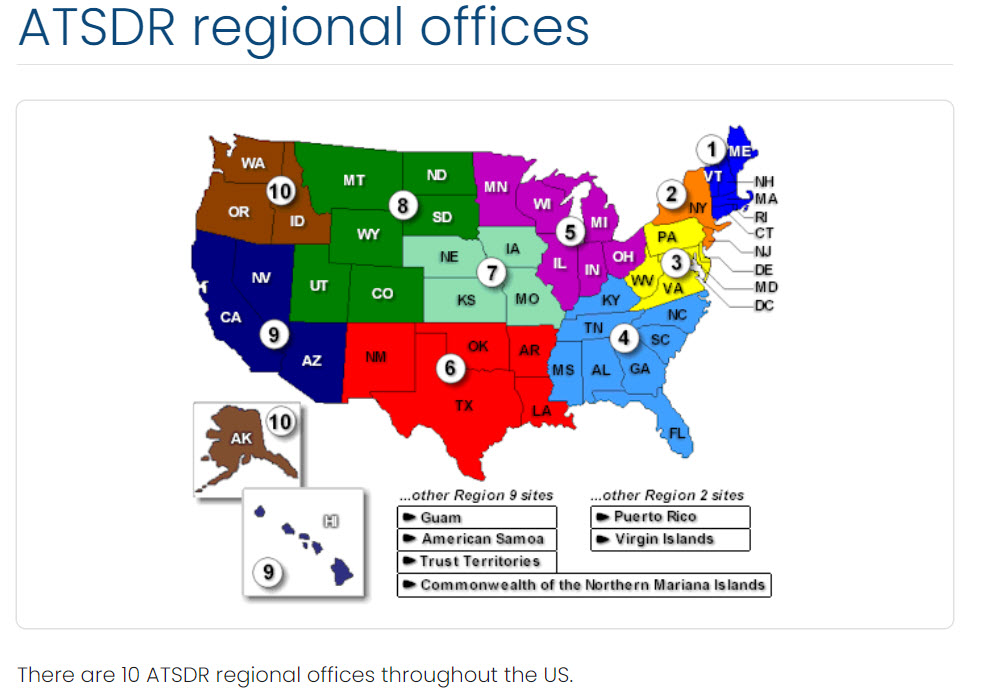At a glance
ATSDR staffs a regional office within each of the U.S. Environmental Protection Agency’s (EPA) 10 regional offices. In addition to their unique experience, ATSDR's regional representatives offer special technical and field experience from their assigned regions.

Overview
Our regional representatives serve as liaisons with all CDC/ATSDR divisions and offices. They help implement specific programs in each region. Regional representatives maintain current and historic knowledge of the sites and issues in their regions. This is achieved through their working relationships with
- the EPA,
- other federal and state agencies,
- community groups, and
- citizens.
Headquarters
ATSDR Office of Community Health & Hazard Assessment
4770 Buford Hwy, NE (MS S102-2)
Chamblee, GA 30341-3717
Contacts
CDR Elizabeth Irvin, PhD
Director (770) 488-3684
jcx0@cdc.gov
LCDR Bradley Goodwin, PhD
Deputy Director
(770) 488-3795
ylm5@cdc.gov
Teresa Foster, MPH, JD
Environmental Health Scientist/Petition Coordinator
(770) 488-0752 tef9@cdc.gov
ATSDR regional offices

Throughout the United States, ATSDR maintains 10 regional offices covering 50 states, U.S. territories, and Puerto Rico. Each is staffed by experts with unique knowledge and backgrounds.
Roles and responsibilities
Regional representatives have many roles and offer unique expertise.
Liaisons. Representatives connect with CDC/ATSDR divisions and offices. They work with EPA, other federal and state agencies, community groups, and citizens to implement specific programs in each region. Staff also maintains current and historic knowledge of the region's sites and issues.
First contacts. Regional staff are often the initial contact on petitions for public health assessments by doing the following:
- Provide information to individuals
- Maintain contact with petitioners during the process
- Attend public meetings
The staff also visits sites of interest to ATSDR to keep information current on community concerns and site status.
Consultants. Staff prepare nearly all ATSDR's health consultations. They write or provide technical assistance to staff at headquarters.
Most consultations begin with a request to a regional office when representatives initially review the data. For more extensive health consultations, additional environmental data, or demographic and site information is collected.
Emergency responders. Expert regional staff engage in emergency response and preparedness activities by doing the following:
- Provide public health support and expertise
- Assist EPA and other partners during emergencies
- Develop and distribute health information to residents
- Participate regularly in training exercises with partners
Manages. Regional offices lead land reuse and redevelopment (brownfields) programs. These educate developers on the benefits of considering public health for projects. Tools and resources include bringing in local health departments.
Regional office staff assist communities and tribes that receive grants. They identify and assess contamination at brownfields or other redevelopment sites. Staff also help them make recommendations to protect health.

